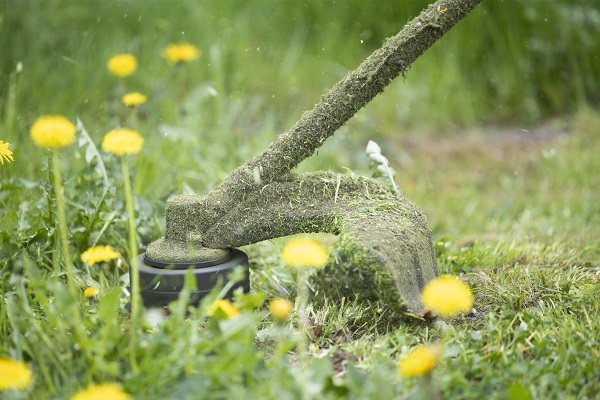
Whether you're new to gardening or a green-fingered garden enthusiast, you'll understand how infuriating it can be to try and prevent weeds from popping up on your lawn. Dandelions, daisies and thistles galore, every spring we're faced with a new bout of weeds that just don't want to budge. But are these weeds bad for your grass?
The short answer is yes, they are. In fact, they can compete with your grass on such an extreme level during the warmer months that you'll be left with sparse, brown patches all over the grass before winter. Weeds are well known for spreading their seeds and quickly taking over large areas of your lawn, so they must be stopped!
If they're left to grow wild and free, they'll use up the water and nutrients in the soil, they'll block your grass from the sunlight and they'll start to look really unsightly. Eventually, your grass might die completely, leaving you with nothing but a garden full of weeds - not ideal. Here's what you can do to stop them.
Kill the weeds (without killing the grass)
There is a fine art to killing lawn weeds without killing the grass, but it can be done. We've covered this topic extensively in a previous blog, but here are your two main options:
- Pulling up the weeds by hand
- Applying a selective herbicide that targets specific weeds
If you're worried about doing either of these tasks yourself, we can help. Our qualified operatives can assess your lawn and help you choose a course of action that won't cause long term damage to your grass.
Get in touch with us >
Soil maintenance
Once the weeds have been removed from your lawn, it's important that you give your grass the best chance to bounce back. Keeping your soil's PH around 6 or 7 (slightly acidic) will help your grass to thrive while also inhibiting the growth of certain nuisance weeds.
Making sure your soil is topped up with a good quality fertiliser will help your grass recover too. Our sister company, Lawn and Weed Expert, offers a lawn fertiliser service that can be tailored to your lawn's needs exactly, thus giving your grass the opportunity to thrive.
Watering
Although it might seem counter-productive to water your lawn where weeds are prevalent, irrigating your lawn properly is a great way to encourage tall grass growth. Longer grass does a great job at smothering young weeds before they have time to blossom into a full-blown problem. Watering your lawn in the morning is a great idea so that the grass has all day to grow and photosynthesise.
Mowing
As we've just mentioned, one way to prevent weeds from killing your grass is to allow your lawn to smother them. So, don't cut your grass too short! It needs to be at least 2 inches long if it's going to stand a chance. Sharp lawn mower blades also help to make sure that your grass is cut cleanly and isn't damaged, therefore, it can continue to grow and overpower the weeds below.
So now you can see how bad weeds are for your grass, we hope you'll think about our weed removal services. Give us a call on 029 2039 7554 if you have any questions.
